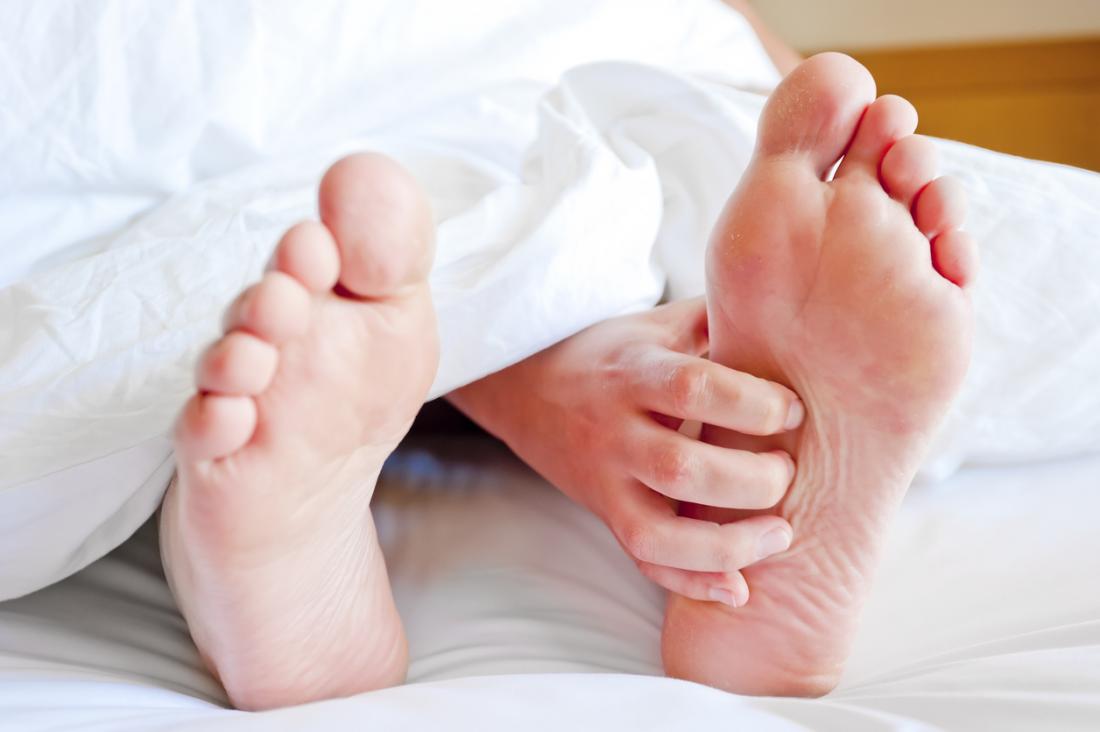Itchy Feet at Night: Unveiling the Culprits and Finding Relief
The sensation of itchy feet, especially at night when you’re trying to unwind, can be incredibly frustrating and disrupt your sleep. While seemingly simple, itchy feet can arise from various causes. This comprehensive guide explores the reasons behind nighttime foot itch, delves into effective treatment options, and provides a helpful FAQ section to address your concerns.
Understanding the Itch: Potential Causes
Several factors can contribute to itchy feet at night. Here’s a breakdown of some common culprits:
- Dry Skin: Dry skin is a frequent cause of itchiness anywhere on the body, including the feet. During sleep, sweat evaporation can worsen dryness, leading to nighttime itching.
- Fungal Infections: Athlete’s foot, a fungal infection that thrives in warm, moist environments, can cause itching, burning, and scaling on the soles and toes. It’s more common in people who wear sweaty shoes for extended periods.
- Eczema: This chronic skin condition characterized by red, itchy, and inflamed patches can affect the feet and worsen at night due to increased scratching and disrupted sleep.
- Psoriasis: Another chronic skin condition, psoriasis can cause itchy, red, and scaly plaques on the soles and other parts of the body.
- Allergic Reactions: Allergies to soaps, detergents, laundry products, or even new sheets and blankets can trigger an itchy reaction on the feet at night.
- Scabies: This highly contagious mite infestation causes intense itching, especially at night, often between the fingers and toes.
- Diabetic Neuropathy: In people with diabetes, nerve damage can lead to a burning or itching sensation in the feet, particularly at night.
- Circadian Rhythm: Our bodies have a natural 24-hour internal clock that regulates various bodily functions, including skin temperature and moisture levels. Skin tends to be drier and itchier at night due to these circadian rhythms.
Illuminating the Diagnosis
A physical examination by a dermatologist or podiatrist is usually sufficient for diagnosis. The doctor will examine your feet, inquire about your symptoms and medical history, and potentially ask about your daily routine and recent changes to your environment or footwear. In some cases, additional tests might be needed, such as:
- Skin scraping: A simple test where a doctor scrapes a small sample of skin from the affected area to look for signs of fungal infection or scabies under a microscope.
- Biopsy: In rare cases, a small tissue sample might be taken for laboratory analysis to rule out any underlying skin conditions.
Finding Relief: Treatment Options
The treatment for itchy feet at night depends on the underlying cause. Here are some common treatment approaches:
- Dry Skin: Moisturizing regularly with fragrance-free lotions or creams specifically formulated for dry feet is crucial. Consider wearing socks to bed to trap moisture.
- Fungal Infections: Antifungal creams, sprays, or powders are typically prescribed for athlete’s foot. In severe cases, oral antifungal medication might be necessary.
- Eczema and Psoriasis: Topical corticosteroids or other medications can help reduce inflammation and itching. Keeping your skin well-moisturized is also essential.
- Allergic Reactions: Identifying and eliminating the allergen is key. Trying hypoallergenic soaps, detergents, and laundry products can be helpful. Antihistamines might be prescribed to manage itching.
- Scabies: Prescription scabicide creams or lotions are used to eliminate the mites and their eggs. Treatment typically involves treating all close contacts to prevent re-infestation.
- Diabetic Neuropathy: Managing blood sugar levels is crucial. Certain medications or topical treatments might be prescribed to manage nerve pain and itching.
Natural Remedies for Soothing Itch
In addition to prescribed treatments, consider incorporating these natural remedies for additional comfort:
- Oatmeal Bath: Soaking your feet in lukewarm oatmeal bath (colloidal oatmeal) can help soothe itchy skin.
- Apple Cider Vinegar (ACV): While scientific evidence is limited, some people find diluted ACV soaks (1 part ACV to 3 parts water) helpful for relieving itch. However, avoid using it on broken skin.
- Aloe Vera Gel: The cooling and anti-inflammatory properties of aloe vera gel might provide some relief when applied topically.
Preventing Itchy Feet at Night
Here are some tips to prevent nighttime foot itch:
- Maintain a Regular Moisturizing Routine: Moisturize your feet daily, especially before bed, to prevent dryness.
- Wear Breathable Shoes and Socks: Opt for cotton socks and breathable shoes to allow your feet to breathe and prevent moisture buildup.
- Wash Bedding Regularly: Hot water washes kill dust mites that can trigger allergies. Wash your sheets and pillowcases at least once a week in hot water.

